
The gallery contains a collection of photographs published in issues of the SAMUDRA Report and the Yemaya Newsletter, as also other ICSF publications, workshops and meetings over the years. Also to be found are more general images of fishing and fishworkers in action across the world. There are about 10,000 photos from 64 countries. The photo database is searchable by caption, country and photographer. All images are free for download, though users are requested to credit the photos to ICSF and the respective photographer.
Loading...
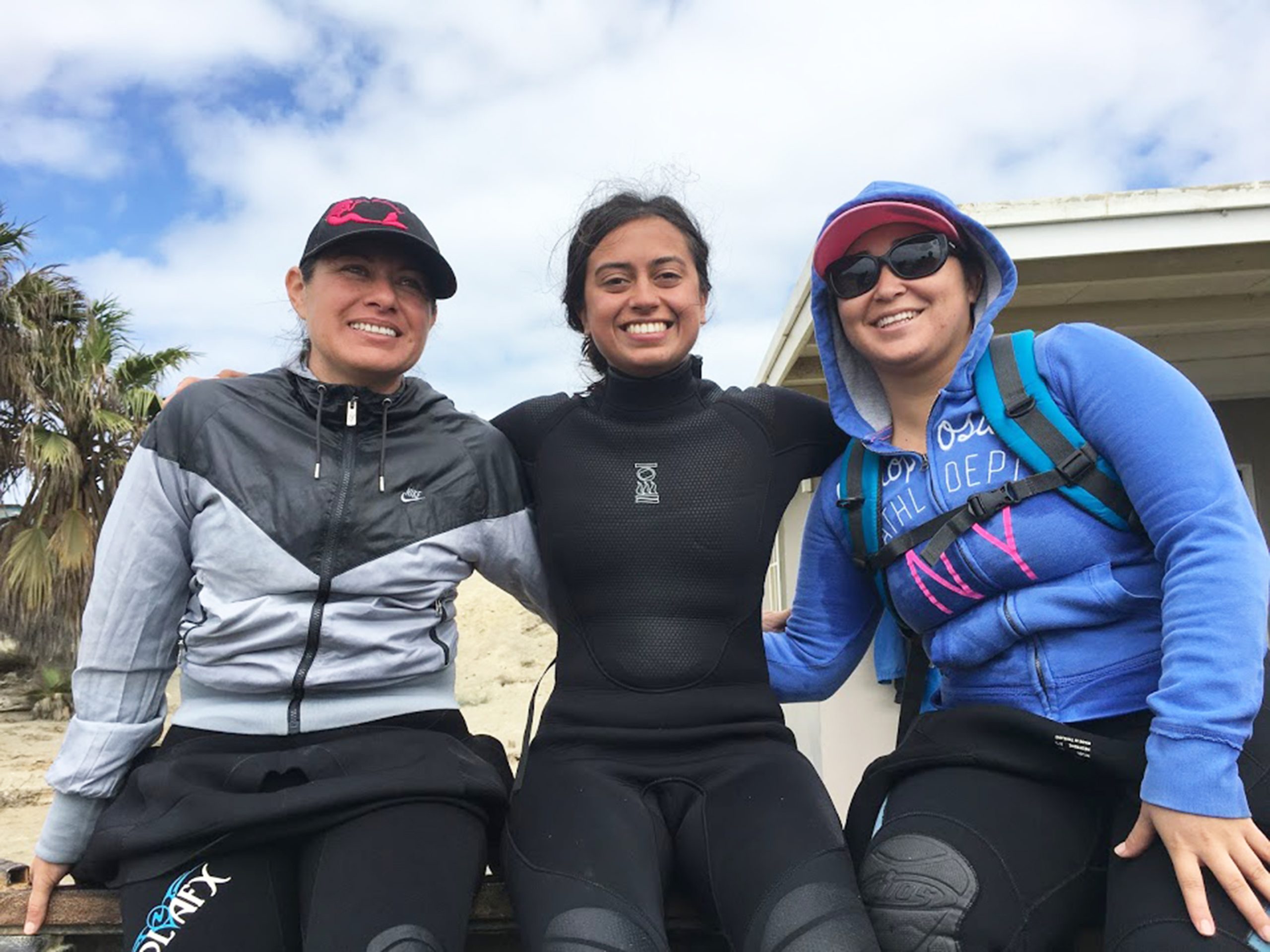
A woman diver group from de Mexican North Pacific, during their oceanographic monitoring. Success stories of women who have achieved what they have due to sheer grit and determination are inspirational to other women and show a way forward.
Photo credit: Community and Biodiversity(COBI)
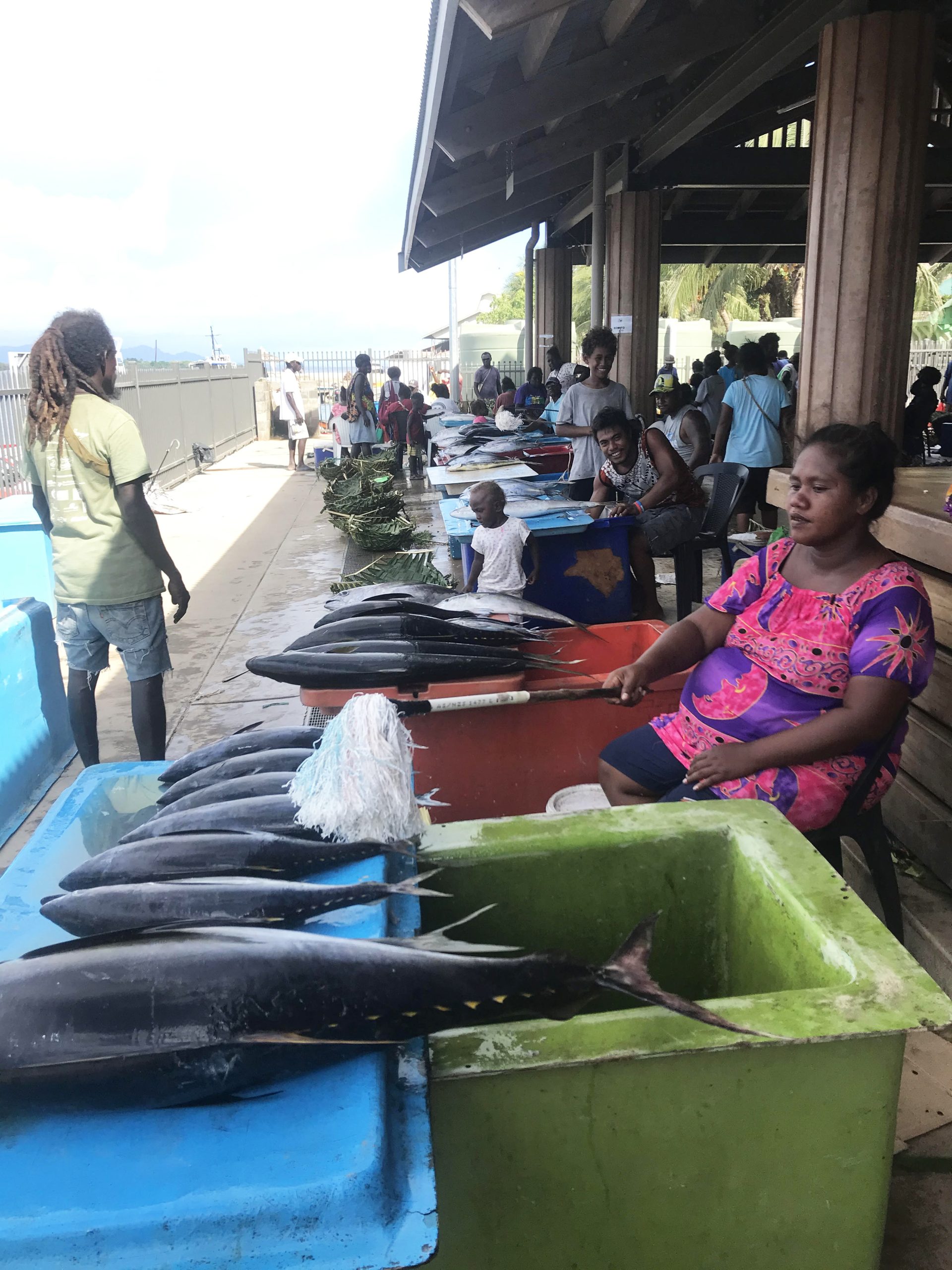
Fisherwomen selling tuna, Gizo Market, Solomon Islands. Need for access to safe shelters and wash facilities, especially for the differently abled, the elderly and pregnant women.
Photo credit: V. Syddall
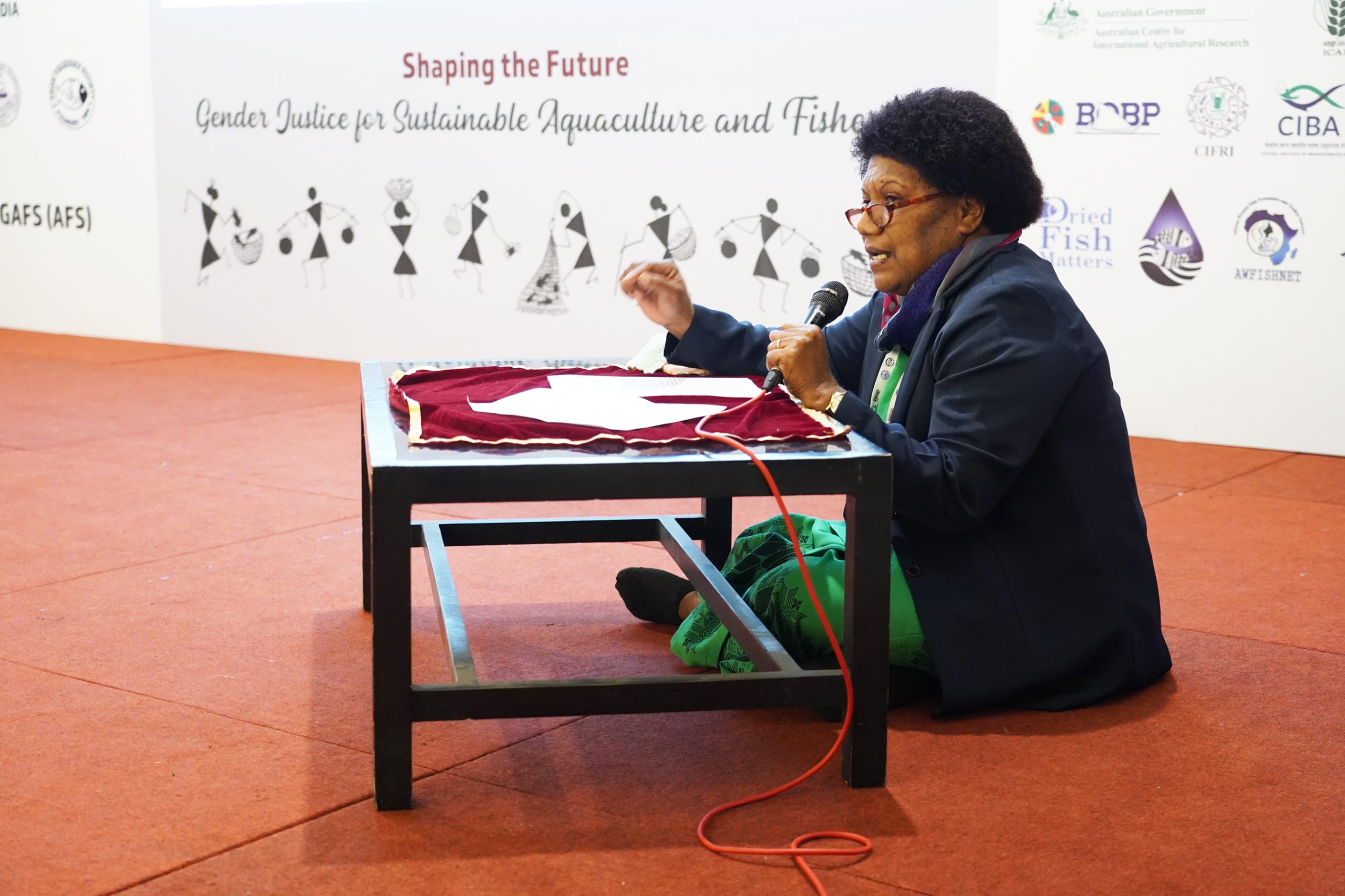
Tarusila Veibi, a fisherwoman and welfare worker from Fiji. An enabling environment is critical for gender justice, and institutions have a crucial role to play in creating an environment where women, particularly, poor and marginalized women, are safe and can hope to thrive.
Photo credit: ICSF
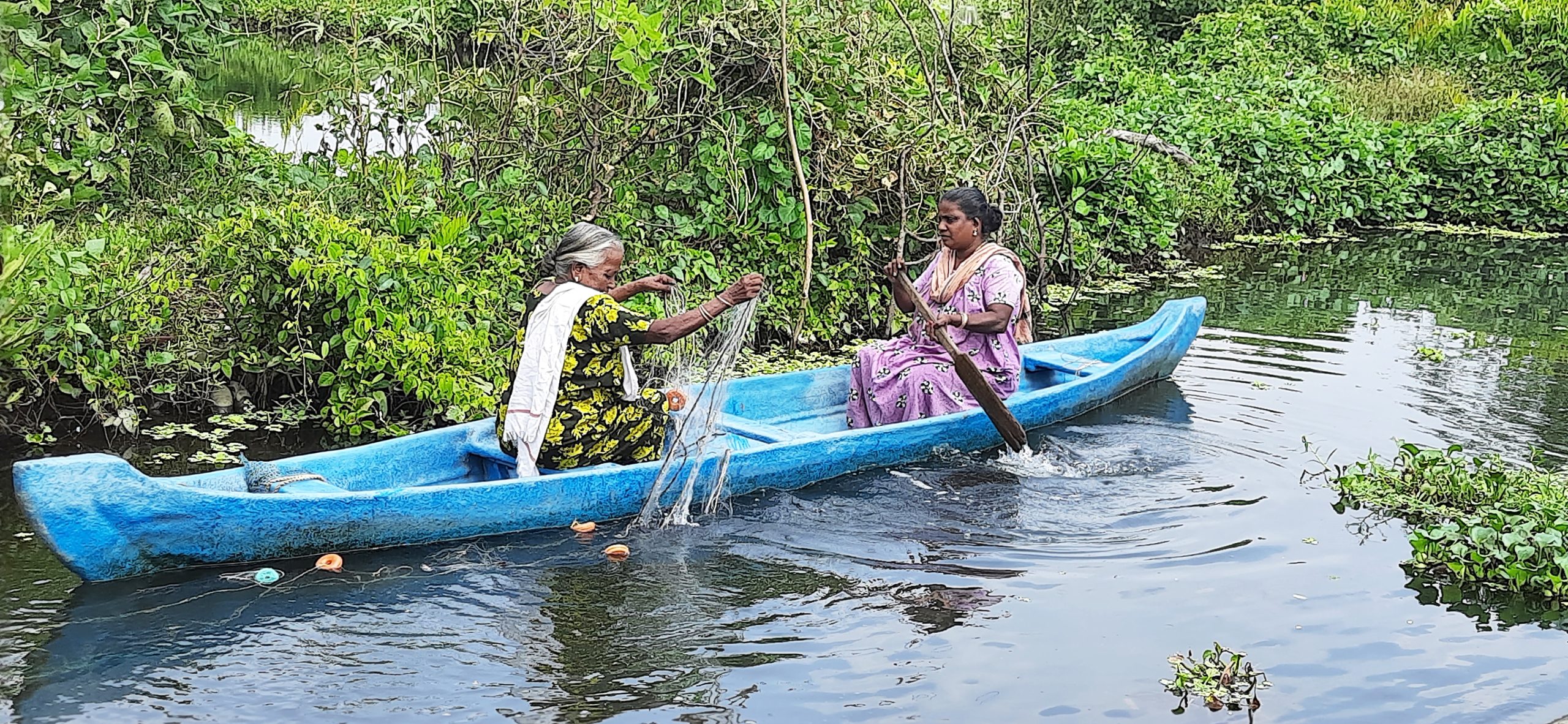
Gillnet fishing by inland fisherwomen at Valanthakad fishing village, Vembanad lake, Kerala, India. A major challenge to the availability of fish and fishery-based incomes in the estuary is the growing pollution of local water bodies.
Photo credit: Sandhya K.M
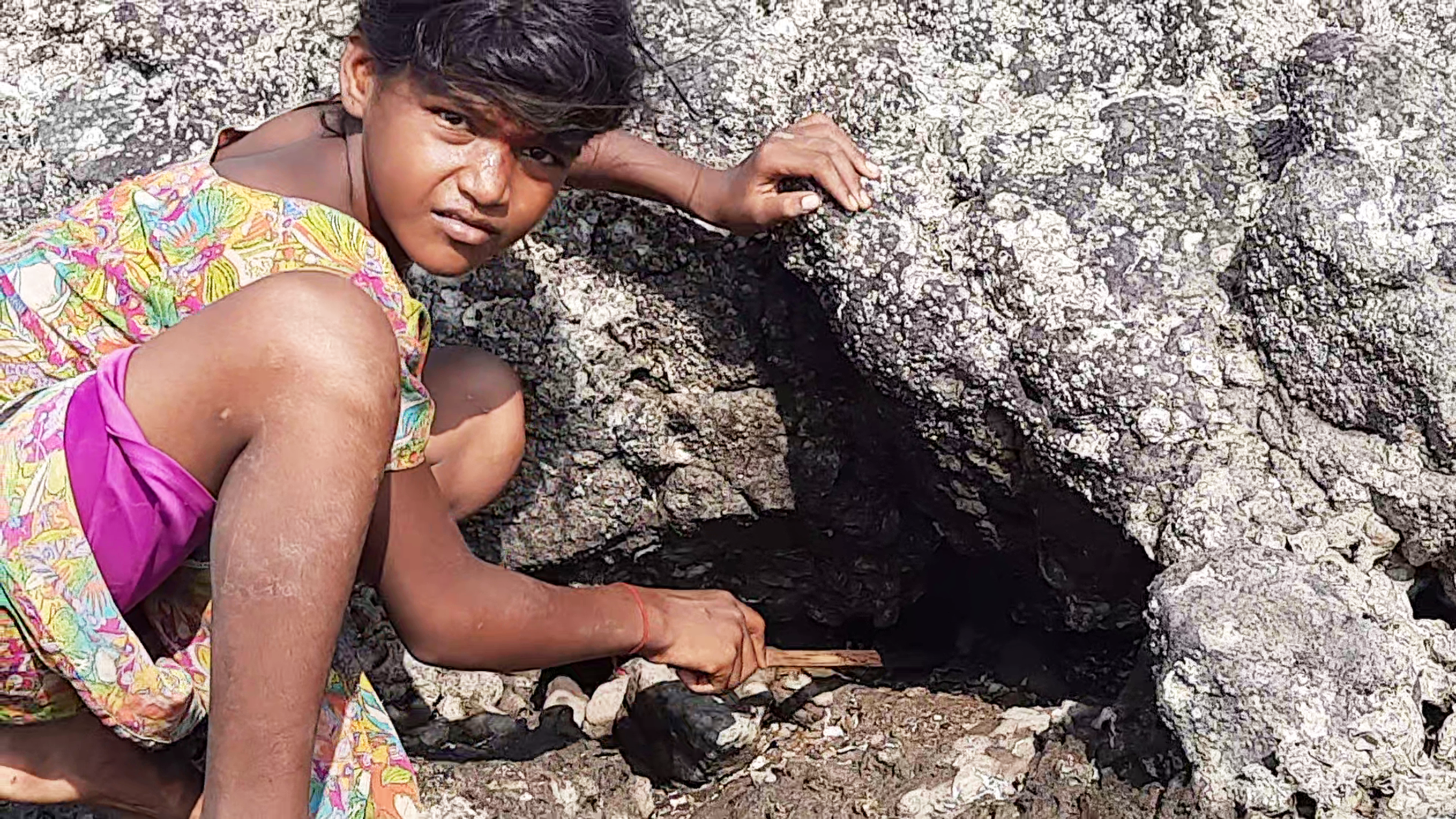
Maneesha, teenager from the Katkari tribe crabbing to feed her family Karanja creek rocky shore, Raigad, Maharashtra, India. The main challenges contributing to poor incomes from fishing were poor infrastructure, lack of ice, limited local market facility, and poor transportation.
Photo credit: Priyanka Nakhawa
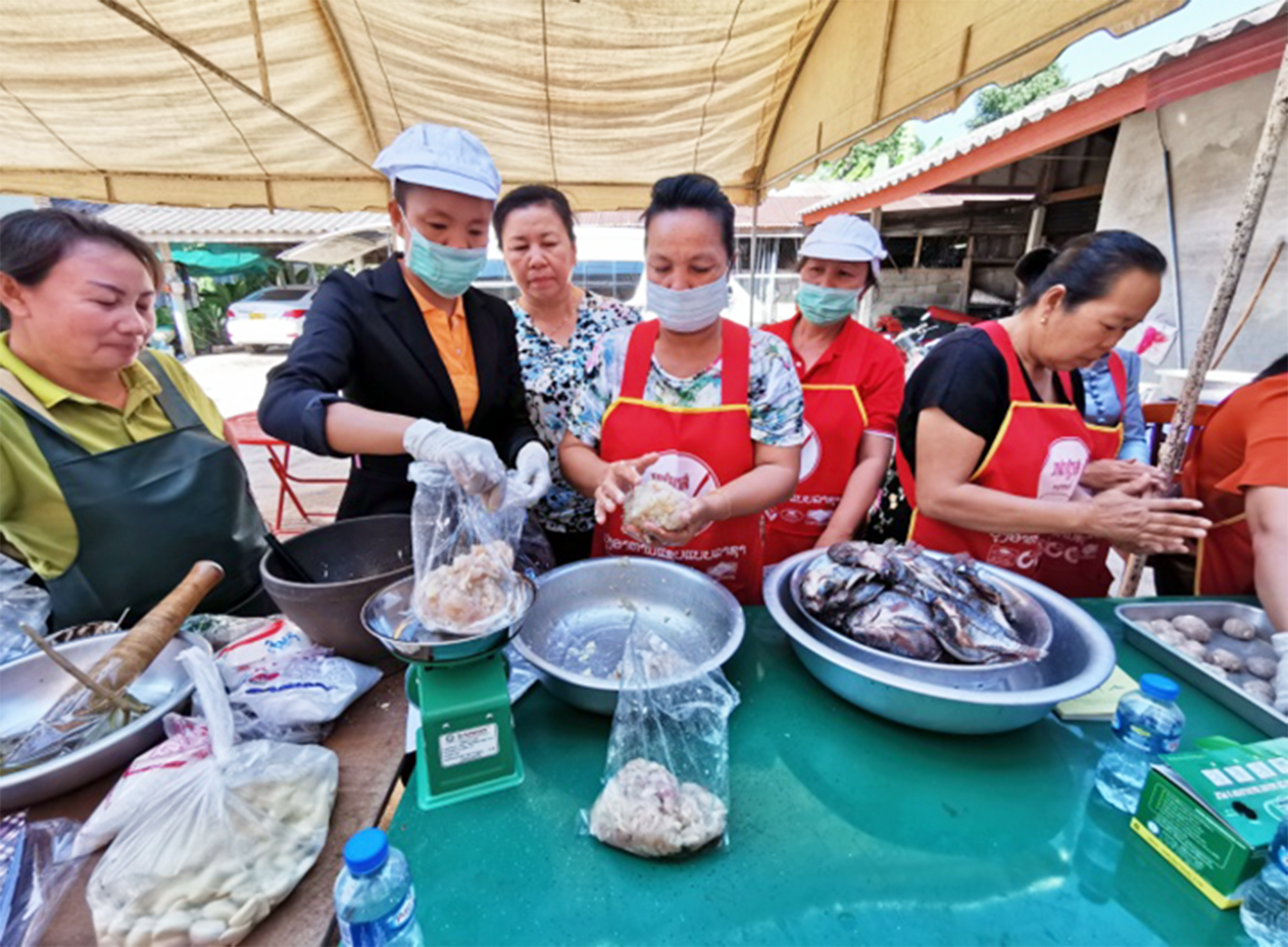
Fish processing group in Namxouang reservoir, Lao PDR. The processing group helped to promote women’s empowerment, contributing much-needed incomes to households and communities.
Photo credit: Dongdavnh Sibounthong
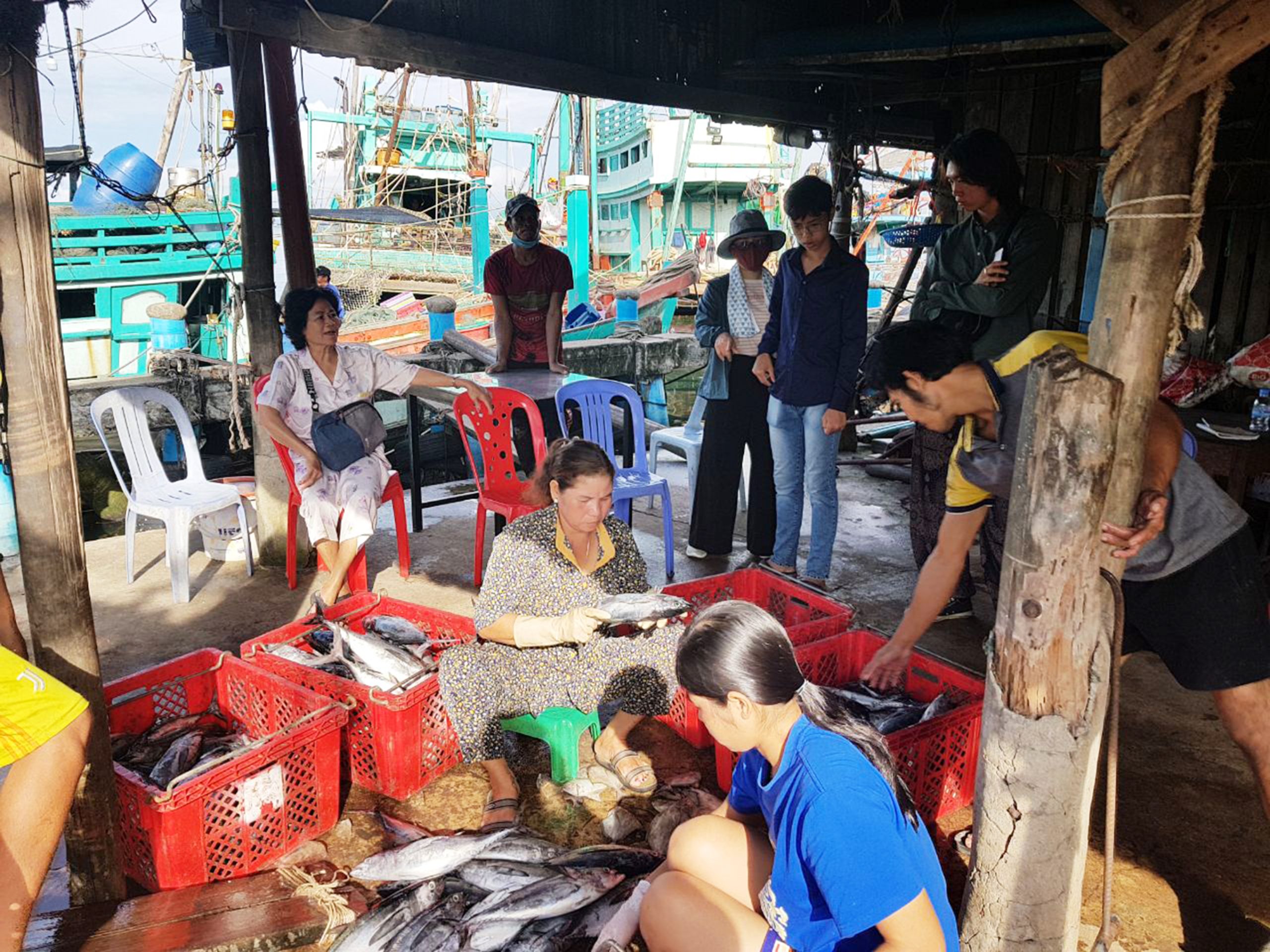
At the fish landing site, women intermediary collects fishery products from fishers, and redistributes them to different destinations in Cambodia. women played a crucial role in aggregating and redistributing fish, but this is neglected in documentation and reporting, making it impossible to develop policies that address their needs.
Photo credit: Chin Leakhena
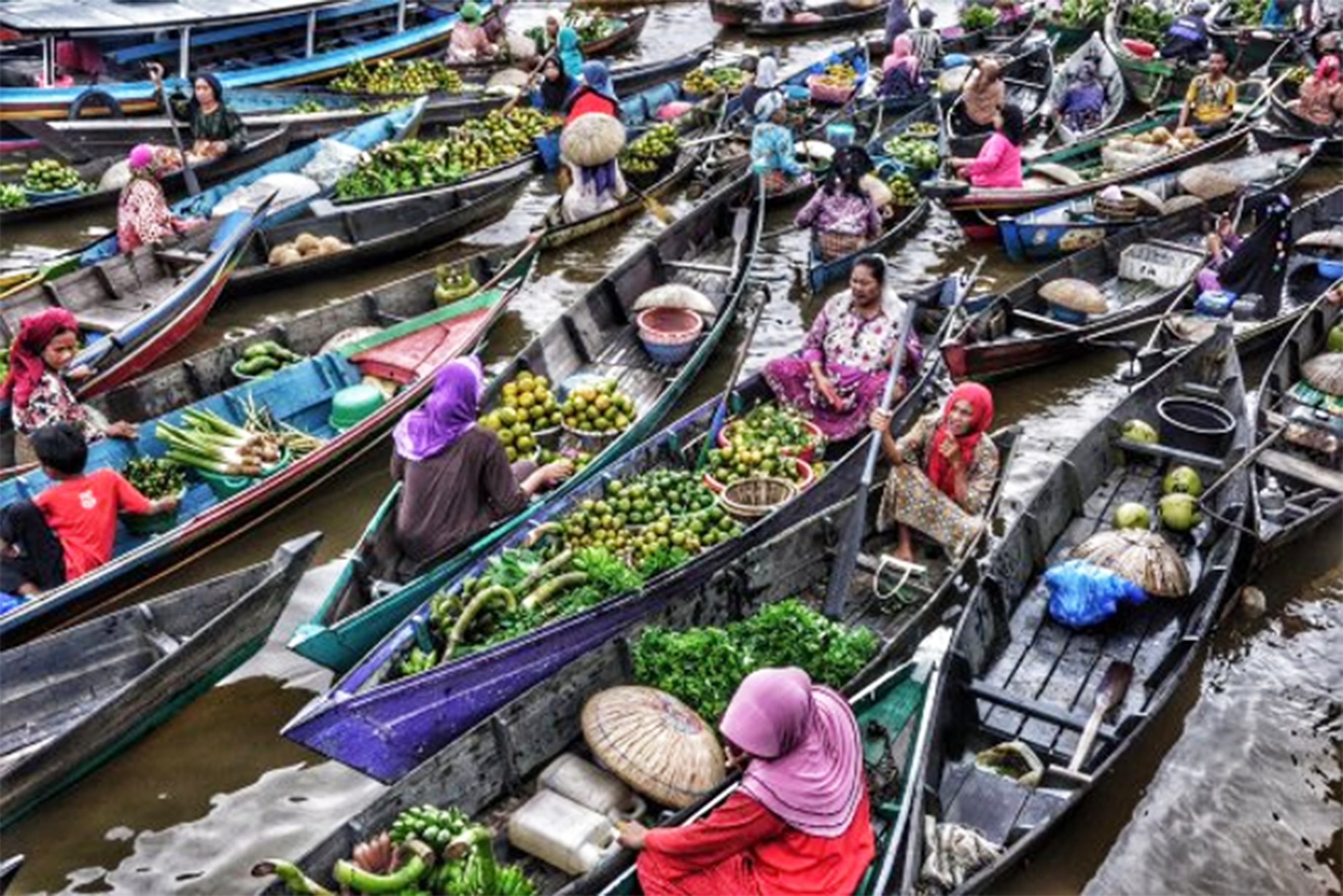
Floating market in Banjarmasin, Indonesia, in early morning showing women participation in productive role. Participants also agreed that standardized tools and methodologies are needed for generating gender-based data in aquaculture and fisheries to inform policy and planning.
Photo credit: Waridin Waridin
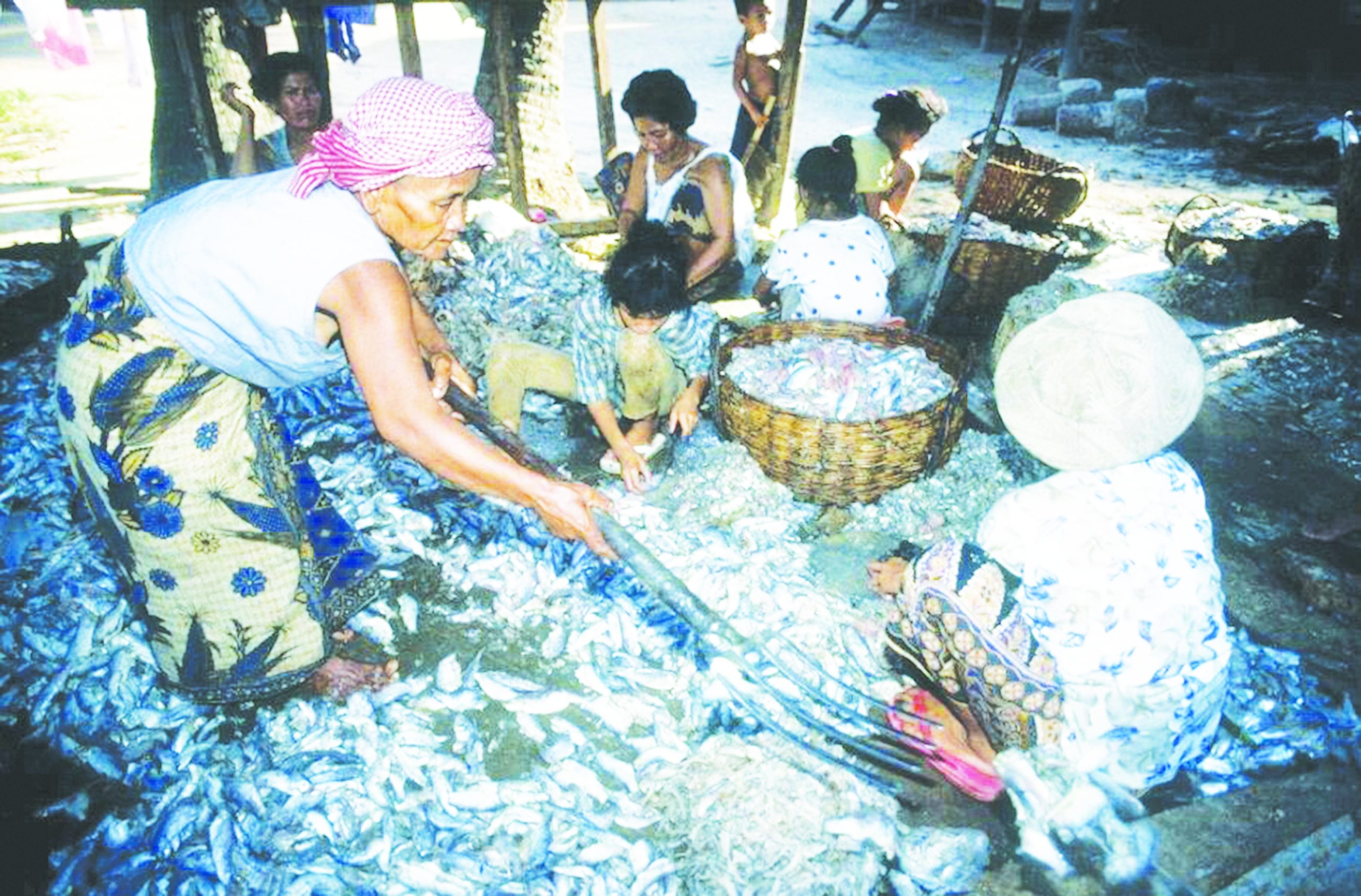
Fishes caught from the rice fields system support the livelihoods of many Cambodian communities. Selling fish at homeplace has a direct impact on families income generation.
Photo credit: Fani Llaurado / WorldFish Cambodia
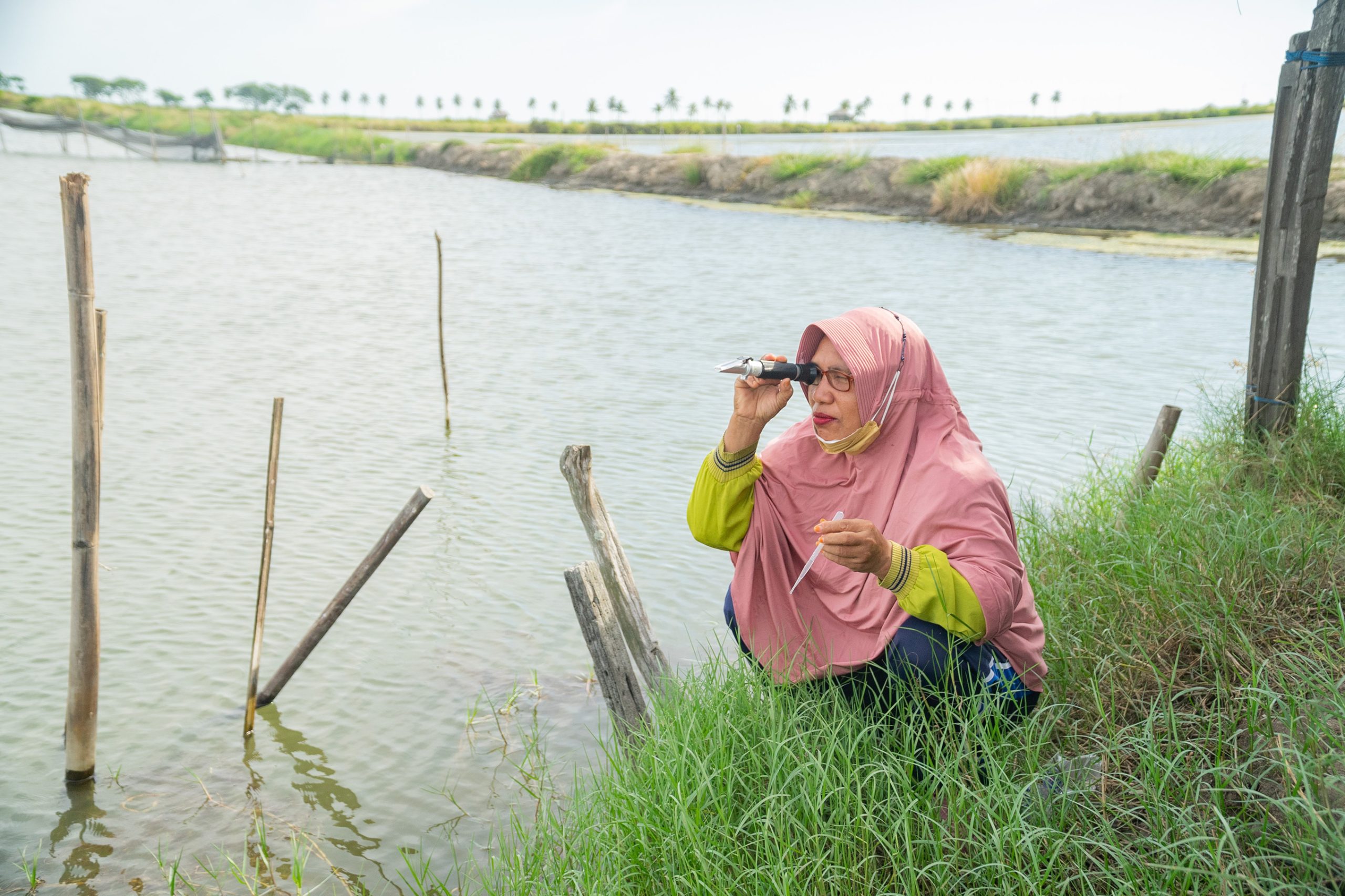
Hasmia, a shrimp farmer in Pinrang, South Sulawesi, Indonesia is checking the salinity in her pond to ensure optimal growing conditions.
Photo credit: Rachel Matheson
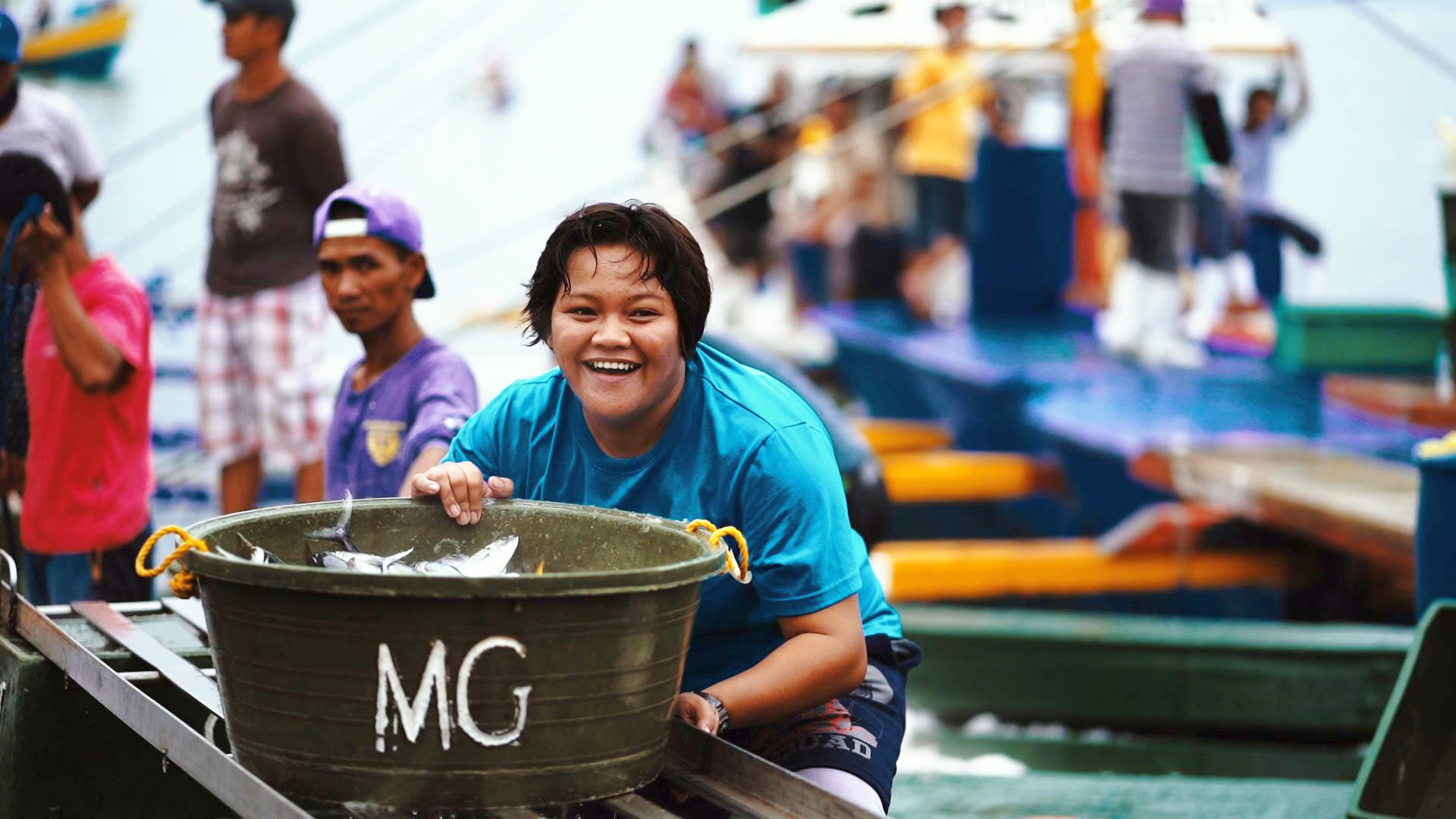
When husbands and sons experienced labour abuse at sea, women themselves experienced a range of negative impacts, such as increased stress, having to take on extra work to make ends meet and shouldering debt burdens.
Photo credit: Kristine Villanueva / PLAN International
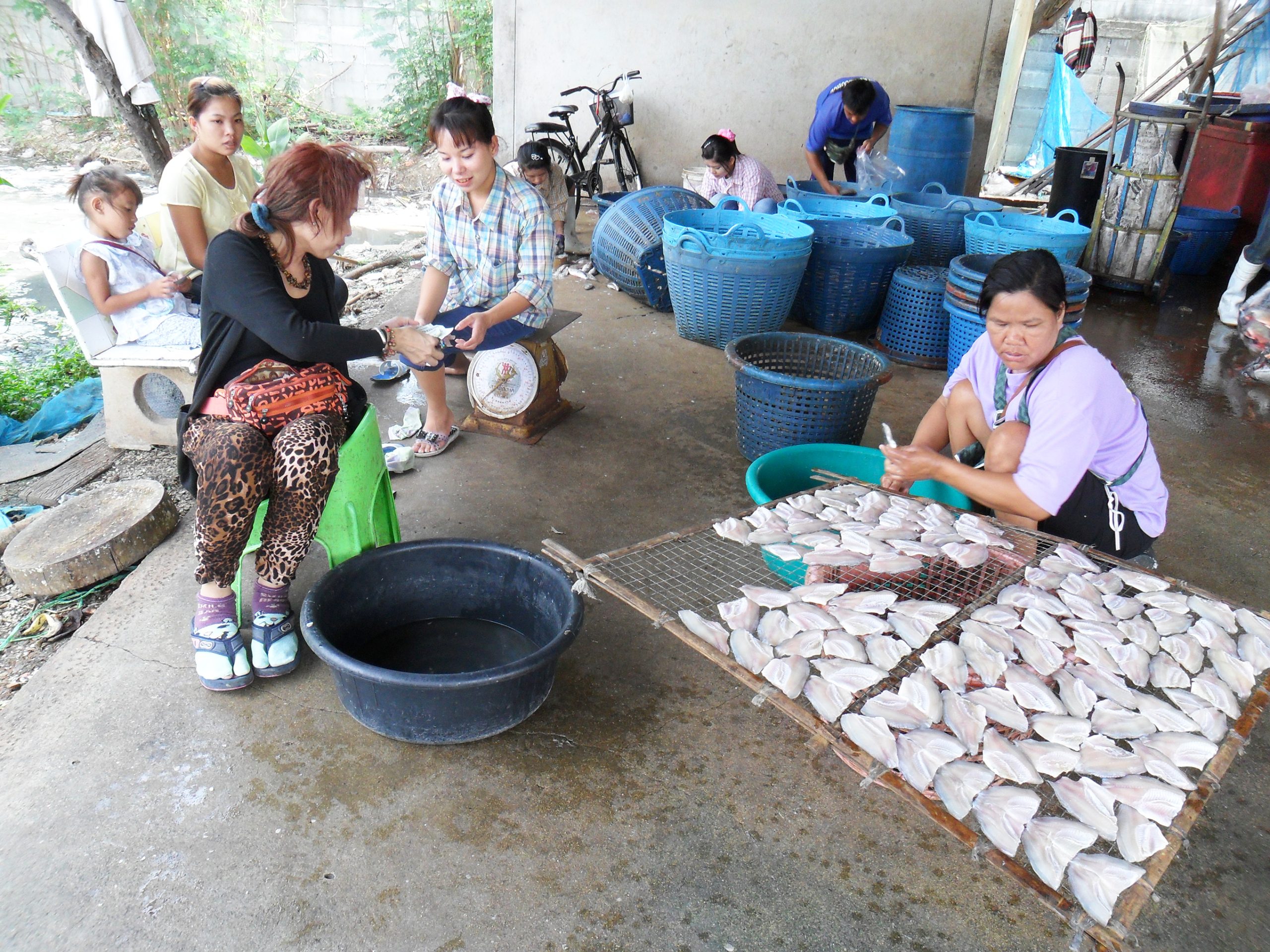
Fisherwomen at work. Work such as fish processing factory jobs, attracts people from poorer areas with fewer economic opportunities. Thais from rural and poor farming areas come for factory work near cities.
Photo credit: Arlene Nietes Satapornvanit
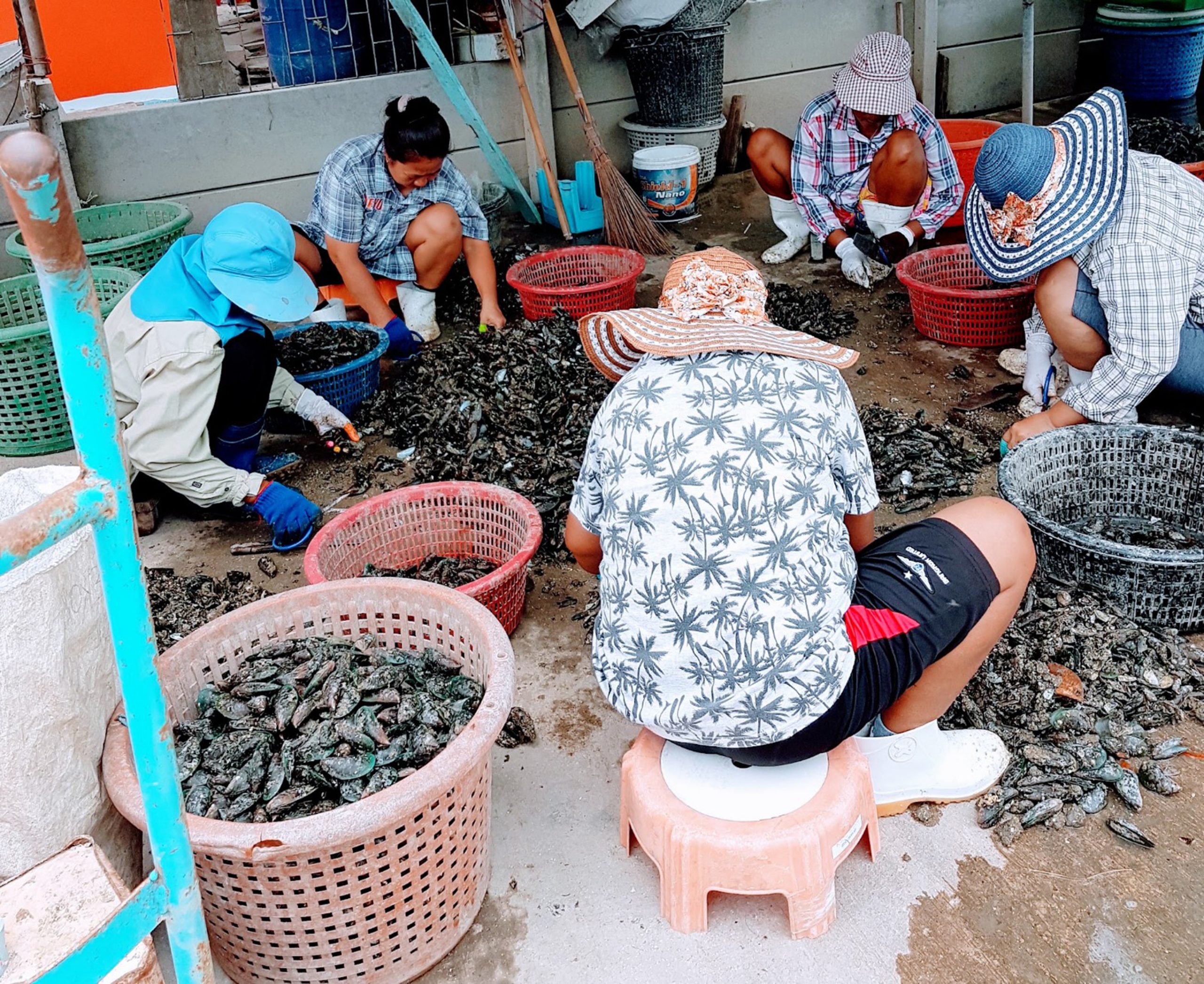
Aquaculture farmers at work. In a business sense, fisheries and aquaculture are slotted in the category of food and beverage manufacturing. Tracking and monitoring progress with robust data is thus an essential component of any diversity strategy.
Photo credit: SDF / Thailand
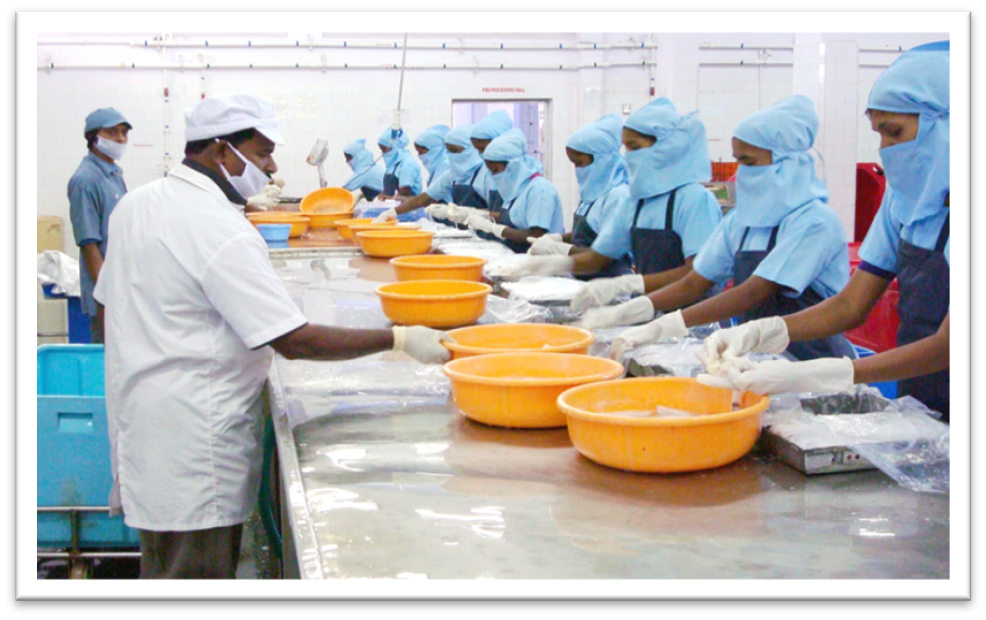
Women working in a seafood processing factory in India. Businesses that are committed to strengthening gender diversity and inclusion should set ambitious but realistic goals.
Photo credit: Sibasis Guha / ICAR-CIFT
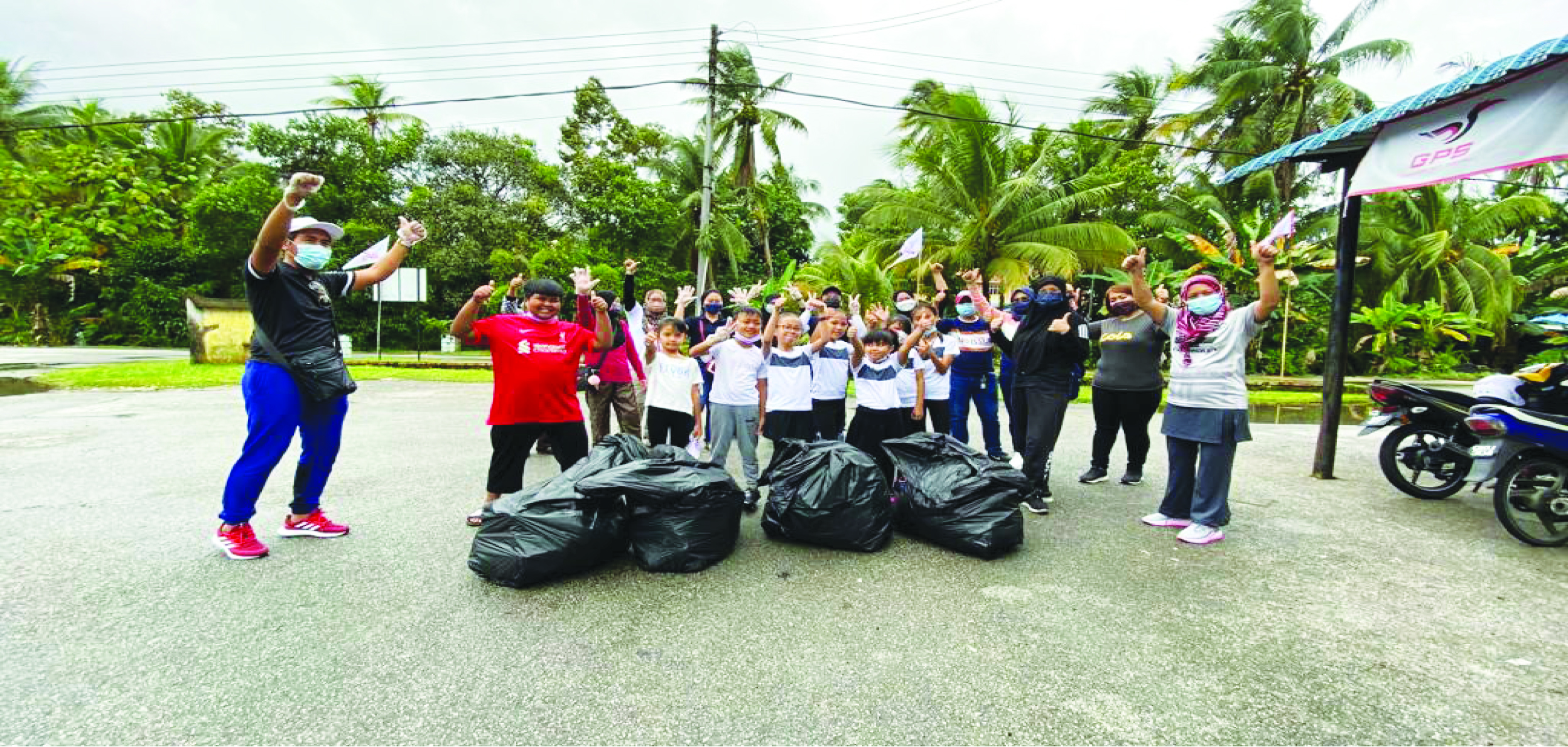
Co-organising a village clean-up as part of village community efforts towards environmental sustainability. Women urgently need to be represented in the local economy, becoming partners in co-creating innovative solutions addressing socio-economic and environmental issues.
Photo credit: UNIMAS Gamification Centre